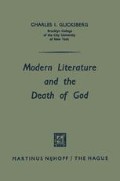Abstract
The growing realization in the twentieth century that God is dead was bound to bring about a transformation in consciousness, sensibility, and ontological values more revolutionary than that which took place when Copernicus overthrew the Ptolemaic system or when Newtonian physics triumphed and the laws of Nature supplanted the laws of God. In the pre-Copernican view of the universe, man was accorded a central place; all the spheres revolved around the earth. What made this planet important was not the central position it occupied but the fact that it was inhabited by rational creatures whose destiny hung in the balance, that it was the object of Heavenly solicitude. God might dwell in solitary and self-sufficient splendor up above, but he was not unmindful of man and his affairs. But the astronomical systems of Copernicus and Kepler pushed back the boundaries of the medieval universe so that the physical universe was infinite in space, infinite in the number of solar systems it contained. In the light of these discoveries Christian theology would in some of its details have to be revised and brought up to date.1 And now the twentieth century ushered in an age which acknowledged the death of the God of Abraham, Isaac, and Jacob, the end of the moving myth of the Incarnation and Redemption.
Access this chapter
Tax calculation will be finalised at checkout
Purchases are for personal use only
Preview
Unable to display preview. Download preview PDF.
References
Arthur O. Lovejoy, The Great Chain of Being. Cambridge: Harvard University Press, 1948, pp. 102–108.
Theodore Dreiser, “What I Believe,” The Forum, LXXXII, (November 1929), p. 320.
Sören Kierkegaard, Either/Or. Translated by David F. Swenson and Lillian Marvin Swenson. Princeton: Princeton University Press, 1946, I, 118.
André Gorz, The Traitor. Translated by Richard Howard. New York: Simon and Schuster, 1959, p. 184.
André Malraux, The Voices of Silence. Translated by Stuart Gilbert. New York: Doubleday and Company, 1953, p. 496.
John Malcolm Brinnin, Dylan Thomas in America. Boston and Toronto: Little, Brown and Company, 1955, p. 128.
T. S. Eliot, On Poetry and Posts. New York: Farrar, Straus and Cudahy, 1957, p. 15.
James Joyce. A Portrait of the Artist as a Young Man. New York: The Modern Library, 1916, p. 252.
James Joyce, Ulysses. Paris: Shakespeare and Company, 1926, p. 545.
See Charles I. Glicksberg, “Camus’s Quest for God,” in Literature and Religion. Dallas: Southern Methodist University Press, 1960, pp. 212–222.
Quoted in Philip Thody, Albert Camus. London: Hamish Hamilton, 1957, p. 140. 1957, p. 140.
Ernest Hemingway, The Sun Also Rises. New York: The Modern Library, 1926, p. 100.
Ernest Hemingway, A Farewell to Arms. New York: The Modern Library, 1929, p. 76.
Paul Tillich, Theology of Culture. New York: Oxford University Press, 1959, p. 70.
Author information
Authors and Affiliations
Rights and permissions
Copyright information
© 1966 Martinus Nijhoff, The Hague, Netherlands
About this chapter
Cite this chapter
Glicksberg, C.I. (1966). Modern Literature and the Death of God. In: Modern Literature and the Death of God. Springer, Dordrecht. https://doi.org/10.1007/978-94-015-0770-7_1
Download citation
DOI: https://doi.org/10.1007/978-94-015-0770-7_1
Publisher Name: Springer, Dordrecht
Print ISBN: 978-94-015-0251-1
Online ISBN: 978-94-015-0770-7
eBook Packages: Springer Book Archive

